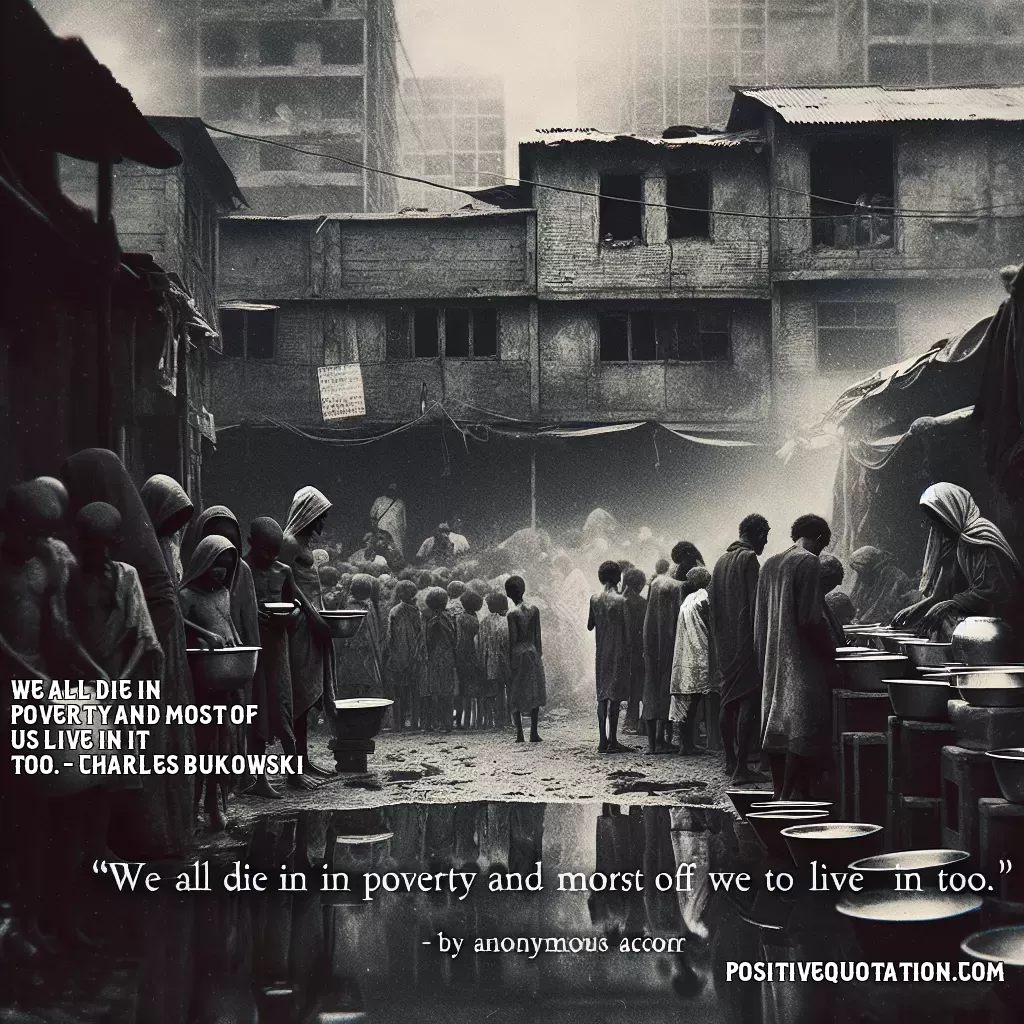
We all die in poverty and most of us live in it too. - Charles Bukowski
Author: Charles Bukowski
👁️ 29 views

We all die in poverty and most of us live in it too. - Charles Bukowski
👁️ 29 views
This quote by Charles Bukowski is a stark reflection on the nature of human existence, where he suggests that poverty is a pervasive and inevitable element of life. Bukowski, known for his raw and unfiltered writing, often delves into themes of the human condition, and this quote is no exception. At its core, the quote captures the idea that material wealth is ultimately fleeting. When he says, "We all die in poverty," Bukowski is likely referring to the fact that, regardless of one’s financial status in life, we all leave this world without our possessions. Death is the great equalizer, rendering everyone equal in the face of mortality. It underscores the futility of material pursuits when viewed through the lens of life’s transience. Furthermore, when Bukowski says, "most of us live in it too," he’s commenting on how the majority of people spend their lives struggling with economic hardships or feel a sense of lack, whether it’s financial, emotional, or existential. This suggests a critique of societal structures that fail to provide opportunities for everyone to rise above a baseline level of poverty. Bukowski might also be touching upon deeper, non-material senses of poverty, such as spiritual or emotional deprivation. Even those who achieve financial success might find themselves feeling empty or unfulfilled, hence living in a kind of poverty that can't be alleviated by wealth alone. Ultimately, this quote challenges readers to reflect on what is truly valuable in life. It suggests the importance of finding meaning beyond material wealth, offering a perspective that encourages examining how we define richness in the human experience.
Quote By: Charles Bukowski
Charles Bukowski was an influential American poet, novelist, and short-story writer born on August 16, 1920, in Andernach, Germany, and raised in Los Angeles, California. Known for his raw, unfiltered writing style and gritty depictions of urban life, Bukowski often drew from his own experiences of poverty, addiction, and relationships. His most famous works include "Post Office," "Factotum," and "Women," which explore the struggles of the downtrodden and marginalized in post-war America. Bukowski passed away on March 9, 1994, leaving behind a legacy that continues to resonate with readers and writers alike.
Bio added on: 2025-02-18 03:30:47